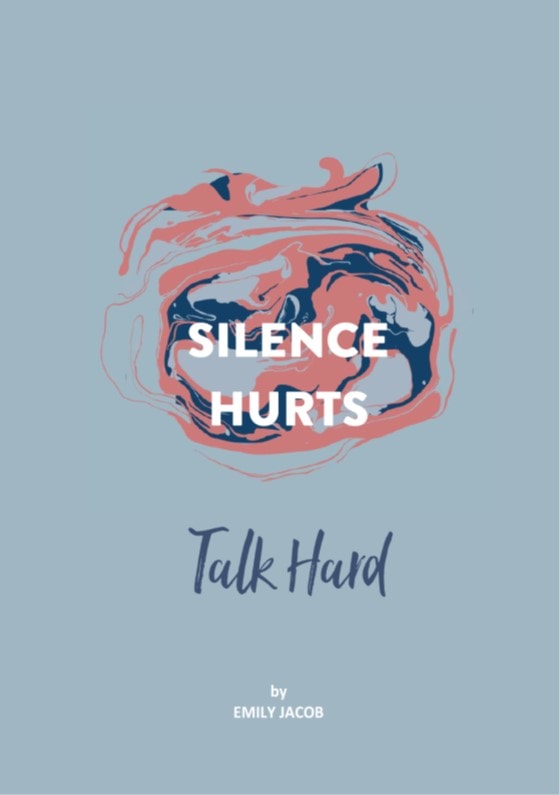I’ve been feeling so very conflicted about Time to Talk day today (Thursday 6th February), the campaign being run by Time to Change in association with Mind and Rethink Mental Illness to encourage a million conversations about mental health to end the stigma associated with mental health problems.
The thing about having a conversation about mental health – you need to feel safe to do so. At work, which is one of the companies mentioned on the Time to Talk website, we are supporting the campaign by asking our staff to post a photo of ourselves on our internal social media platform having a cup of tea with someone, having our ‘time to talk’ conversation. It’s not so much actually talking, but posting pictures to claim we’re talking. I suppose I could do that, but what would the point actually be?
If I were to actually talk, I don’t think people would know how to react. Because my experience so far has been that people don’t know how to react. The people aren’t bad, or unfeeling, but when I share, they feel uncomfortable. And so they avoid. I’m a fairly open person, more likely to over-share than be comfortable keeping things to myself. So, not feeling able to share what feels like the biggest thing about myself in my work-life for fear of what people will think, how they will judge, does not feel congruent with the real, authentic, me.
The authentic me is on my mind today. Because today I went to a Stonewall workshop on how to be an Authentic Role Model. And I want to be that person, the one who lives true to her ideals and values, who acts & behaves in a way in which she believes.
I made a resolution at the start of this year to be more open about my mental health. Recently I shared with a new colleague the general details of why I leave early on a Friday afternoon (to see my psychiatrist), and why I take the opportunity to work from home when I can, because being around people too much is exhausting and I need to take care. He didn’t even acknowledge it. When asked to participate in the Time to Talk campaign by the organisers (because I am active through my work with the LGBTQ network on our Diversity & Inclusion Council, and in that forum I expressed an interest in progressing how mental health is handled within our company), I wrote back saying I was uncomfortable, and I gave my reasons, as well as sharing my diagnosis. Again, no acknowledgement.
I recognise that when people share mental health problems, this makes the other person unsure how to respond, and possibly makes them feel uncomfortable. But how difficult is it to say the words, “I’m sorry to hear that”, or, “thank you for sharing that with me, I know you’re showing me trust in sharing”, or, “oh, that’s horrible.”
It’s all very well having a time to talk campaign. But what about those who are listening? How do we teach them how to listen in a human way, with empathy, even with sympathy?
But, as I said at the start, I’m conflicted. I know that change only happens when there is a groundswell of change, a tipping point. And that only happens if people start speaking up, and someone does need to start the conversation, sometime. In the early 1970s Harvey Milk asked the gay people of San Francisco to speak up, to demonstrate to the straights that they would all know someone gay, to help normalise what seemed at the time abnormal. The thing is, outing yourself, being open, that is a privilege for those who can afford to pay the price.
A while back, at a different company, when I told my boss about my anxiety attacks, and the reason for them, and that I was on diazepam, I was told I lacked resilience. My future performance was suspect and could not be trusted because I lacked resilience. She attempted to manage me out, but I fought with what little energy I had at the time, and instead resigned with a decent pay-off. Since then, I’ve been more circumspect. When I had a further, more prolonged, break-down 2 years ago, I did share again at my current company; the reaction was more understanding, and yet they still don’t understand. They recognise that my diagnosis of PTSD means that it is classified as a formal disability and thus they cannot discriminate against me for it. However, I will still be told at performance review that my work has suffered – impossible to say whether it is my innate performance or, a lack of focus caused by the disease.
But, still conflicted. Someone needs to stand up, many of us do. And I stood up in Trafalgar Square in front of hundreds of people, and said that. I said that silence hurts us. And yet I am being silent. Am I a hypocrite, unable to do as I say? Of course, following that day, I took too many sleeping tablets and anti-anxiety tablets and was lucky to wake up at all, causing yet another break-down and a week off work (only a week though… I have resilience…). So, do I speak up, and risk a reaction, and risk my reaction to that?
But. I was interviewed this week by a magazine on being a bi role model (I am chair of our LGBTQ network) and that has got me thinking on what it means to be a role model. Surely a role model is visible, and leads, and doesn’t stay silent on the important issues? And today I was at the course run by Stonewall on how to be an authentic role model, and I will share my learnings with my colleagues. Not speaking up, it doesn’t feel consistent with showing leadership, being worthy of being a role model.
I don’t think a role model has to be perfect, which is a very good thing, as I am far from perfect – some of the ways I choose to live my life would certainly be considered by many to be far from perfect, but I do try to live with authenticity. The course today made clear though, that speaking up needs to be done in the context of the situation. And so I won’t be speaking up at work. It is time to talk. But not there, yet.
But if I were to talk, this is what I’d say.
*raises hand* Hello, my name is Emily and I suffer from PTSD and depression. Some days I’m fine. Usually, I’m pretending to be fine. Pretending is exhausting. And it’s not very authentic. Some days, I can’t get out of bed. Some days, I’ll have an anxiety attack just thinking about leaving the flat. Some nights, I don’t sleep. Many nights, I’ll have nightmares and wake up screaming, or in tears, or shaking. Sometimes, I’m triggered and get taken back to the time when the trauma happened. I think about it every day.
I have so many coping mechanisms: I mistreat food; I haven’t cut in a while, but it’s always on my mind; I think about how I’ll choose to die, although recently I think it’s an improvement to merely be thinking about disappearing; when I drink, I drink far too much; I mistreat prescription & over the counter drugs, and have been known to partake of the less legal kind.
I see a psychiatrist every week, and we’re going through trauma therapy; this means I am voluntarily taking myself somewhere to voluntarily re-live the trauma, again and again, and again, in order to build new brain waves, and to de-sensitise the reactions. I’ve spent over 5 years in various talking therapies & counselling; which only help you maybe cope with the trauma, it is only trauma therapy that can possibly find a way through to the other side – but of course, no-one tells you that, because that’s expensive. I’m lucky, I have private medical insurance, and finally realised it might be covered. I wouldn’t get it on the NHS. I’m also lucky that my psychiatrist is telling my GP what to prescribe me. Anti-depressants have become a vital & necessary part of my recovery, or being able to just be. But sorting through to find one which doesn’t have debilitating side effects has taken almost a year. One type made me sweat like a human shower. Another, made me into a daytime zombie.
If I had a penny for every time someone suggested that exercise might make me feel a bit better, to get some fresh air, to laugh, to just pretend I felt better and I magically would… well, then, I’d be rich. Depression isn’t just feeling a bit down, and needing to be kick-started out of it. Yes, I can give a really good impression of being fine when you need me to, but I pay the price for it afterwards. Depression is isolating because you can’t face being around people, the energy it takes to pretend. It’s isolating because actually, no matter how much your friends love you, no-one wants to be around a sad person all the time. PTSD is isolating because you’re anxious, on edge; I’ve found I’ve lost relationships with people who obviously weren’t friends in the first place, because they simply don’t believe that the trauma I experienced which resulted in the PTSD could be real. I’ve removed myself from close relationships with my family because the reasons why I have PTSD are too emotional for me to handle on their behalf. If you have PTSD, if you have depression, you believe the rest of the world is judging you, thinking you are weak, you should be stronger – you aren’t resilient. If people know, you feel exposed, vulnerable, unsafe. And if they know you have PTSD – do they also judge the reasons why?
I’m the most resilient person I know – because I’m still here. And at the same time as all this, I am trying to hold down a job. Mostly, I’m winning. My social life has faltered quite a bit, I don’t have energy for much else beyond recovery and work, and I sleep most of the weekend. If I had a physical injury, a broken bone, cancer, people’s reaction would be much more sympathetic, people wouldn’t expect me to put on my brave face and do a day’s work. But I don’t have a physical injury. Just as you can’t see that I like girls as well as boys, you can’t see the mess inside my head.
Do you still want to talk?
And, more importantly, will you listen?
Like this? Read more. Download Silence Hurts: Talk Hard below.
SILENCE HURTS
Talk Hard
Silence hurts. It eats us from the inside. It traps us, making sure we feel isolated and alone.
In talking there is a taking back of control. In talking we find that we are not alone, that there are others, that others have healed, that healing is possible, that there is hope. In talking we find community.
In talking there is power. Talk hard.



0 Comments